Abstract
The survival of Salmonella adelaide and fecal coliforms in two coarse sands influenced by two sources of septic tank effluent was studied. The experiments were conducted in conditions that reflected the soil environment beneath functioning septic tank systems. Significant differences in survival were found with different effluent sources. In one experiment the survival of S. adelaide was similar to that of fecal coliforms; in the other it was not. The nonuniform, multiphasic nature of survival curves was variability observed in these experiments suggests that the application of such survival data for establishing management criteria for septic tank systems--by, for example, the use of soil moisture characteristic curves to give estimates of movement in the soil--is inappropriate.
Full text
PDF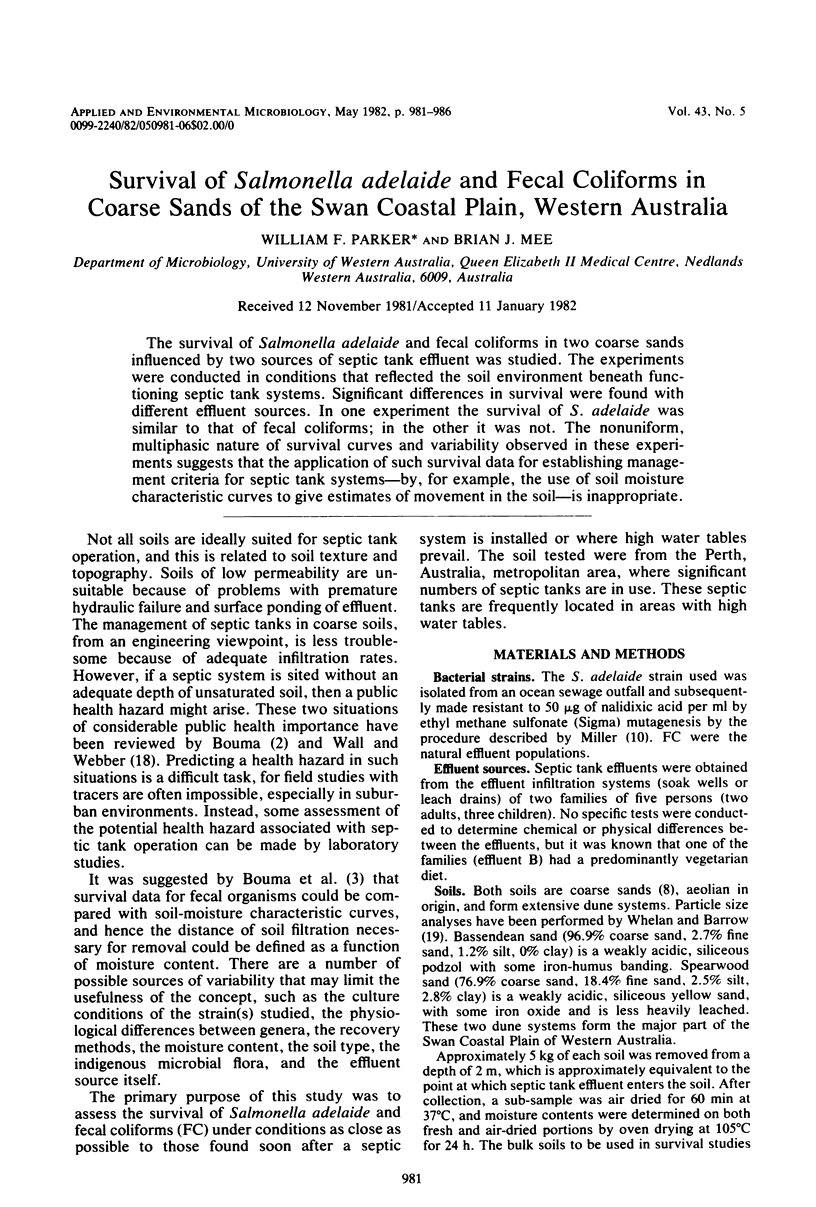
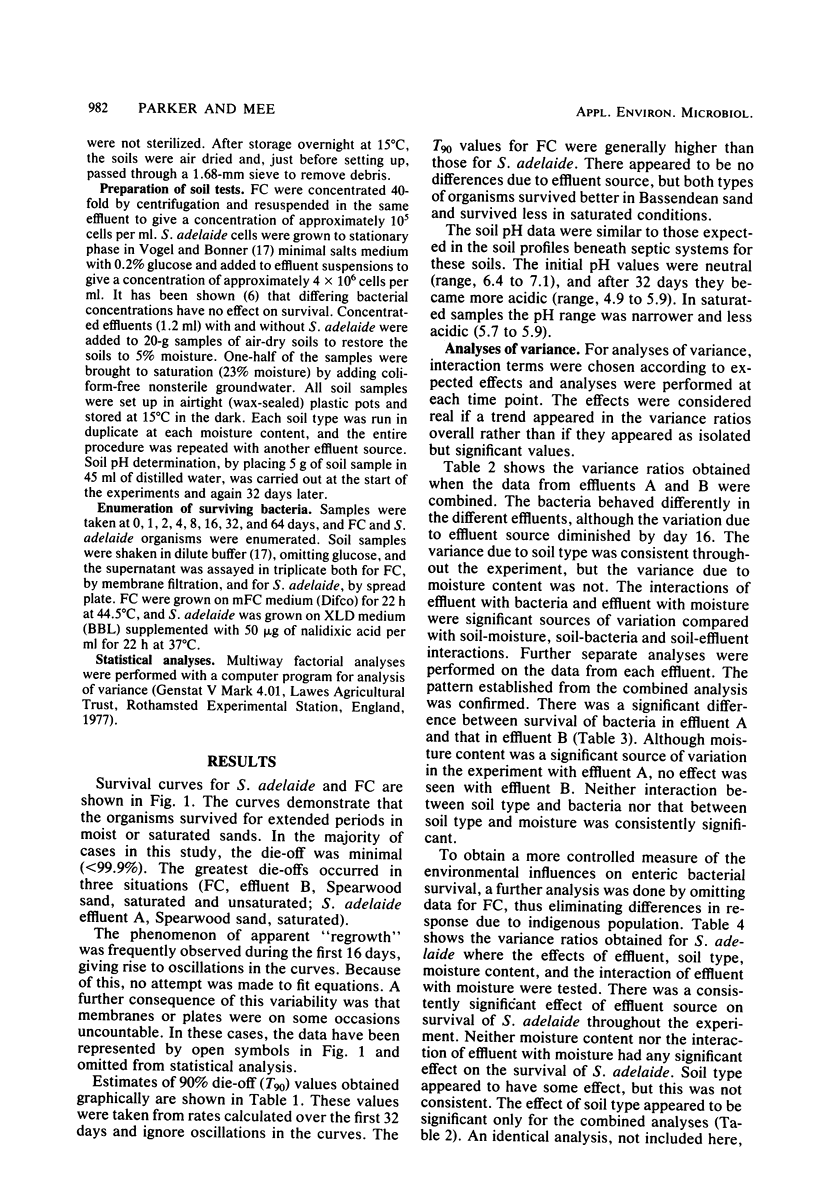
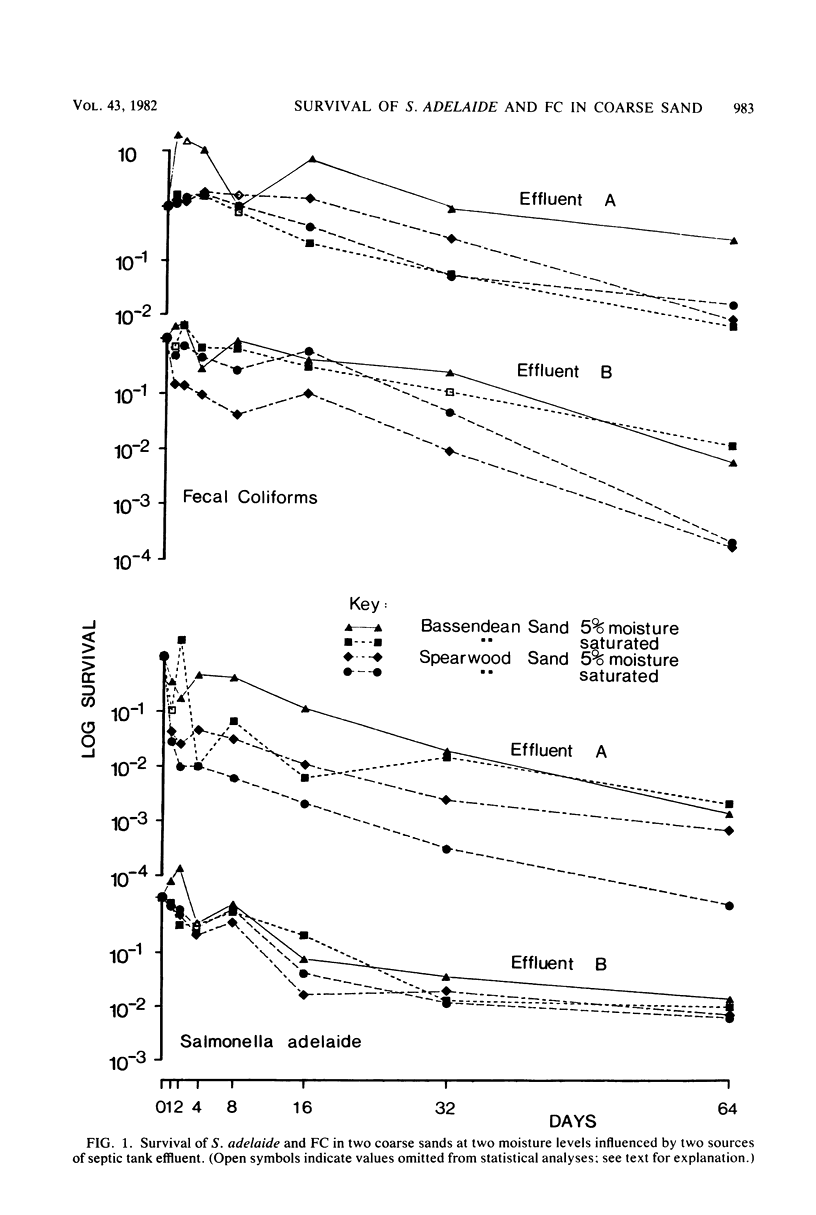
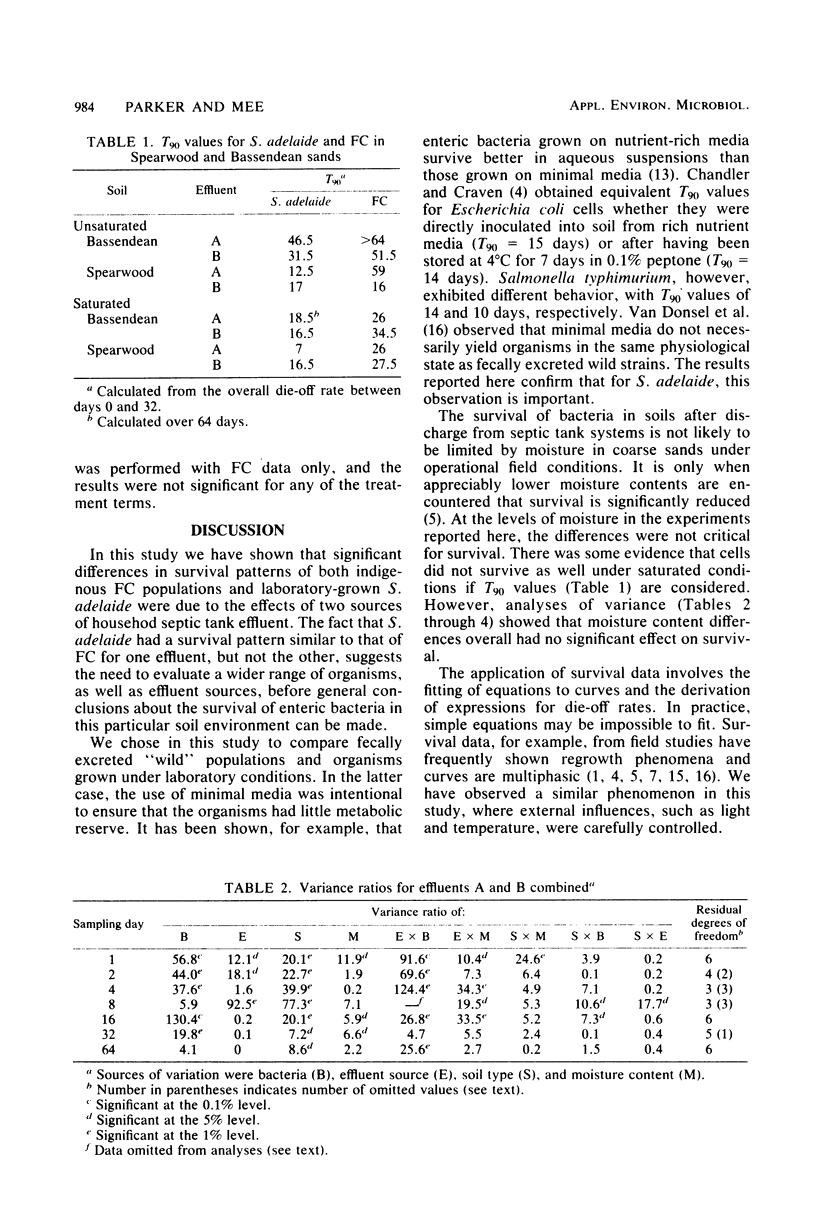
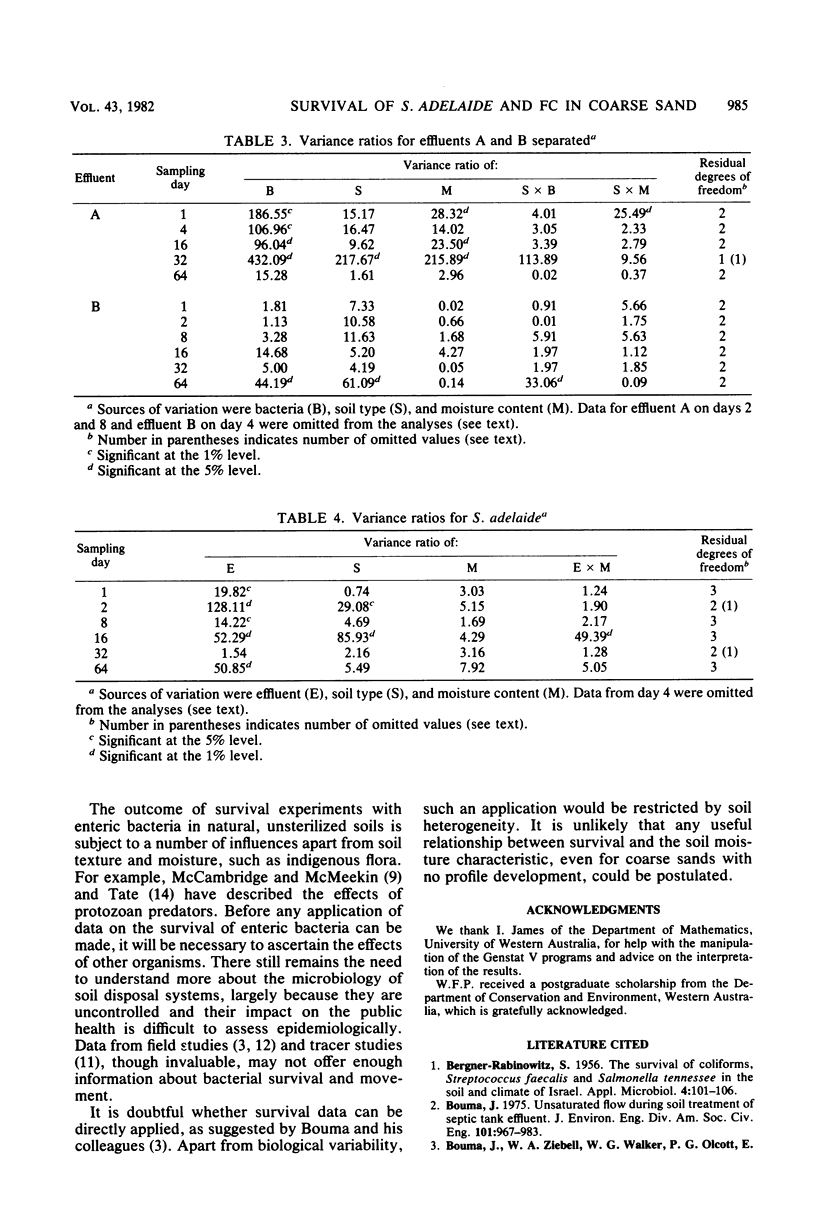
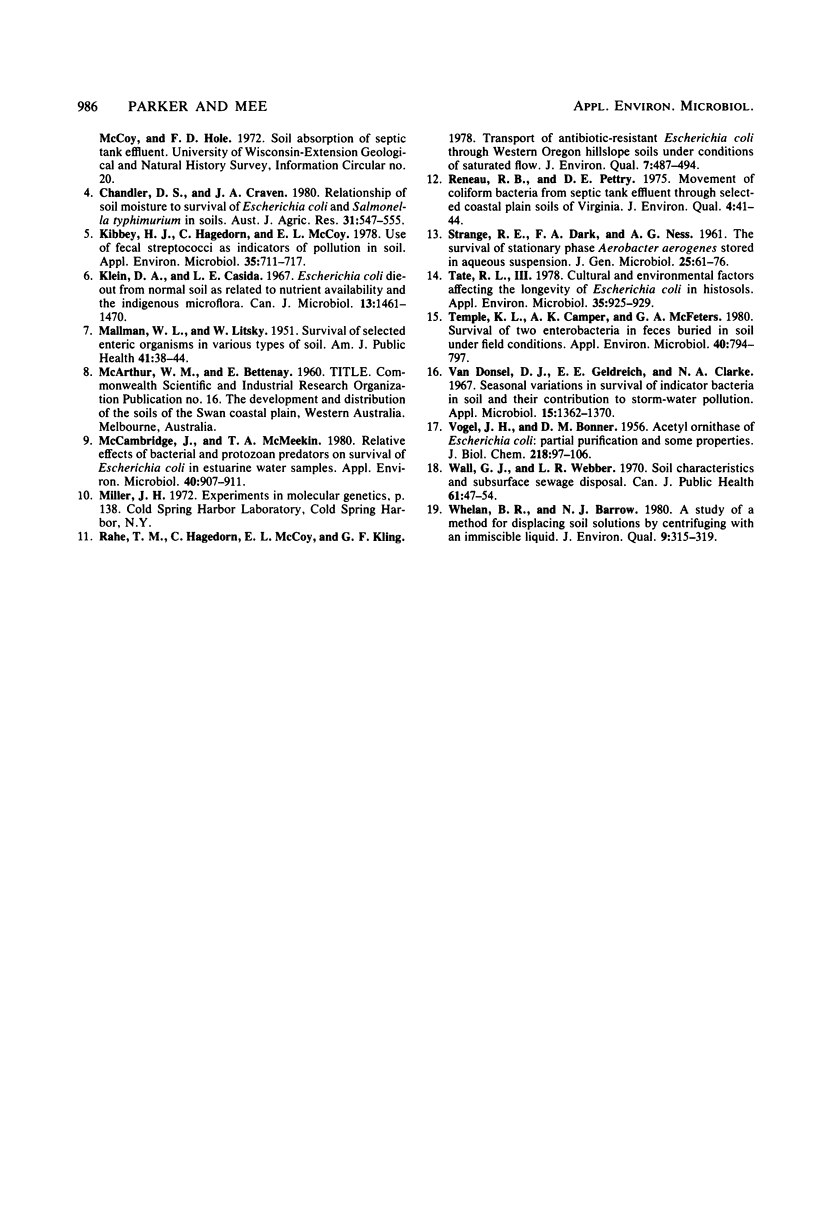
Selected References
These references are in PubMed. This may not be the complete list of references from this article.
- BERGNER-RABINOWITZ S. The survival of coliforms, Streptococcus faecalis and Salmonella tennessee in the soil and climate of Israel. Appl Microbiol. 1956 Mar;4(2):101–106. doi: 10.1128/am.4.2.101-106.1956. [DOI] [PMC free article] [PubMed] [Google Scholar]
- Kibbey H. J., Hagedorn C., McCoy E. L. Use of fecal streptococci as indicators of pollution in soil. Appl Environ Microbiol. 1978 Apr;35(4):711–717. doi: 10.1128/aem.35.4.711-717.1978. [DOI] [PMC free article] [PubMed] [Google Scholar]
- Klein D. A., Casida L. E., Jr Escherichia coli die-out from normal soil as related to nutrient availability and the indigenous microflora. Can J Microbiol. 1967 Nov;13(11):1461–1470. doi: 10.1139/m67-194. [DOI] [PubMed] [Google Scholar]
- MALLMANN W. L., LITSKY W. Survival of selected enteric organisms in various types of soil. Am J Public Health Nations Health. 1951 Jan;41(1):38–44. doi: 10.2105/ajph.41.1.38. [DOI] [PMC free article] [PubMed] [Google Scholar]
- McCambridge J., McMeekin T. A. Relative effects of bacterial and protozoan predators on survival of Escherichia coli in estuarine water samples. Appl Environ Microbiol. 1980 Nov;40(5):907–911. doi: 10.1128/aem.40.5.907-911.1980. [DOI] [PMC free article] [PubMed] [Google Scholar]
- Tate R. L., 3rd Cultural and environmental factors affecting the longevity of Escherichia coli in Histosols. Appl Environ Microbiol. 1978 May;35(5):925–929. doi: 10.1128/aem.35.5.925-929.1978. [DOI] [PMC free article] [PubMed] [Google Scholar]
- Temple K. L., Camper A. K., McFeters G. A. Survival of two enterobacteria in feces buried in soil under field conditions. Appl Environ Microbiol. 1980 Oct;40(4):794–797. doi: 10.1128/aem.40.4.794-797.1980. [DOI] [PMC free article] [PubMed] [Google Scholar]
- VOGEL H. J., BONNER D. M. Acetylornithinase of Escherichia coli: partial purification and some properties. J Biol Chem. 1956 Jan;218(1):97–106. [PubMed] [Google Scholar]
- Van Donsel D. J., Geldreich E. E., Clarke N. A. Seasonal Variations in Survival of Indicator Bacteria in Soil and Their Contribution to Storm-water Pollution. Appl Microbiol. 1967 Nov;15(6):1362–1370. doi: 10.1128/am.15.6.1362-1370.1967. [DOI] [PMC free article] [PubMed] [Google Scholar]
- Wall G. J., Webber L. R. Soil characteristics and subsurface sewage disposal. Can J Public Health. 1970 Jan-Feb;61(1):47–54. [PubMed] [Google Scholar]


